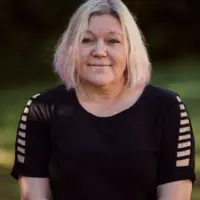Having time away from the stressors at home helped very much.
About Broadway Crossings
Staff at Opportunity Alliance – Broadway Crossings take a person-centered approach to all of their behavioral health services. Programs include residential treatment, inpatient treatment, and outpatient treatment.
Residential Treatment
The residential program is available to those aged 18 and older. This program is suitable for individuals who need a high level of support. Psychiatric care, therapy, and group classes are available.
Inpatient Treatment
Individuals in need of short-term crisis intervention may participate in this psychiatric care inpatient program. Programming includes medication review and management and discharge planning into the next phase of care.
Outpatient Treatment
The outpatient program is suitable for individuals of all ages. Individual therapy, group therapy, couples counseling, family therapy, and case management are provided.
Facility Overview
Latest Reviews
Rehab Score
Other Forms of Payment
Private insurance refers to any kind of healthcare coverage that isn't from the state or federal government. This includes individual and family plans offered by an employer or purchased from the Insurance Marketplace. Every plan will have different requirements and out of pocket costs so be sure to get the full details before you start treatment.
Self-pay involves paying for treatment out of your own pocket. You can use savings or credit, get a personal loan, or receive help from family and friends to fund your treatment. If you don't have insurance or your insurance plan doesn't cover a specific program, self-pay can help ensure you still get the care you need.
Financial aid can take many forms. Centers may have grants or scholarships available to clients who meet eligibility requirements. Programs that receive SAMHSA grants may have financial aid available for those who need treatment as well. Grants and scholarships can help you pai for treatment without having to repay.
Medicare is a federal program that provides health insurance for those 65 and older. It also serves people under 65 with chronic and disabling health challenges. To use Medicare for addiction treatment you need to find a program that accepts Medicare and is in network with your plan. Out of pocket costs and preauthorization requirements vary, so always check with your provider.
Medicaid is a state based program that helps lower-income individuals and families pay for healthcare. Medicaid covers addiction treatment so those enrolled can use their coverage to pay for rehab. When a program accepts Medicaid the client often pays very little or nothing out of their own pocket.
Addiction Treatments
Levels of Care
Outpatient rehabs provide a wide range of programs, services, and treatment schedules to accommodate clients' unique and evolving needs. Many outpatient treatment centers offer evening, night, and weekend services to accommodate clients' work and home schedules. Clients in outpatient treatment typically engage in multiple counseling sessions weekly, including group and family therapy. Many facilities also prioritize recovery-focused life skills training to support clients' sustained sobriety and successful community reintegration. Medication assisted treatment (MAT) is also prevalent in outpatient care.
Residential treatment programs are those that offer housing and meals in addition to substance abuse treatment. Rehab facilities that offer residential treatment allow patients to focus solely on recovery, in an environment totally separate from their lives. Some rehab centers specialize in short-term residential treatment (a few days to a week or two), while others solely provide treatment on a long-term basis (several weeks to months). Some offer both, and tailor treatment to the patient's individual requirements.
The best time for a drug intervention in Maine is when you think a loved one needs help with substance use and they are not seeking it. A drug intervention is an organized effort to confront them and share how their behavior has affected those around them. Intervention services can provide an intervention specialist to walk you through this process.
24-hour clinical care in Maine provides rehab clients with a more comfortable detox experience. This can lead to better recovery outcomes. Under this care, clients receive treatment for withdrawal symptoms as well as assistance with mental health disorders. This treatment may include medications, nutritional supplements, and professional counseling to address health issues, addiction issues, and co-occurring disorders.
Treatments
Many of those suffering from addiction also suffer from mental or emotional illnesses like schizophrenia, bipolar disorder, depression, or anxiety disorders. Rehab and other substance abuse facilities treating those with a dual diagnosis or co-occurring disorder administer psychiatric treatment to address the person's mental health issue in addition to drug and alcohol rehabilitation.
Mental health rehabs focus on helping individuals recover from mental illnesses like bipolar disorder, clinical depression, anxiety disorders, schizophrenia, and more. Mental health professionals at these facilities are trained to understand and treat mental health issues, both in individual and group settings.
Programs
Adult rehab programs include therapies tailored to each client's specific needs, goals, and recovery progress. They are tailored to the specific challenges adult clients may face, including family and work pressures and commitments. From inpatient and residential treatment to various levels of outpatient services, there are many options available. Some facilities also help adults work through co-occurring conditions, like anxiety, that can accompany addiction.
Young adulthood can be an exciting, yet difficult, time of transition. Individuals in their late teens to mid-20s face unique stressors related to school, jobs, families, and social circles, which can lead to a rise in substance use. Rehab centers with dedicated young adult programs will include activities and amenities that cater to this age group, with an emphasis on specialized counseling, peer socialization, and ongoing aftercare.
Recovery is most successful when clients feel accepted and validated by their peers and treatment providers. Facilities that offer LGBTQ-inclusive programming are committed to creating a safe space where everyone can grow and recover without fear of judgment or discrimination. They will have dedicated policies in place to create a safe and supportive environment that fosters free expression.
Clinical Services
In individual therapy, a patient meets one-on-one with a trained psychologist or counselor. Therapy is a pivotal part of effective substance abuse treatment, as it often covers root causes of addiction, including challenges faced by the patient in their social, family, and work/school life.
Research clearly demonstrates that recovery is far more successful and sustainable when loved ones like family members participate in rehab and substance abuse treatment. Genetic factors may be at play when it comes to drug and alcohol addiction, as well as mental health issues. Family dynamics often play a critical role in addiction triggers, and if properly educated, family members can be a strong source of support when it comes to rehabilitation.
Trauma therapy addresses traumatic incidents from a client's past that are likely affecting their present-day experience. Trauma is often one of the primary triggers and potential causes of addiction, and can stem from child sexual abuse, domestic violence, having a parent with a mental illness, losing one or both parents at a young age, teenage or adult sexual assault, or any number of other factors. The purpose of trauma therapy is to allow a patient to process trauma and move through and past it, with the help of trained and compassionate mental health professionals.
Whether a marriage or other committed relationship, an intimate partnership is one of the most important aspects of a person's life. Drug and alcohol addiction affects both members of a couple in deep and meaningful ways, as does rehab and recovery. Couples therapy and other couples-focused treatment programs are significant parts of exploring triggers of addiction, as well as learning how to build healthy patterns to support ongoing sobriety.
Holistic treatment centers incorporate recreational therapy into their treatment programs in Maine to help you discover new interests and develop healthy coping mechanisms while moving away from drug and alcohol use. Activities like yoga and group sports promote physical and mental health, reduce stress, and encourage social interaction within your peer group. This is essential to maintain long term sobriety.
Amenities
-
Residential Setting
-
Private Rooms
Staff & Accreditations
Staff

Joe Everett
President & CEO

Donna Gartland
Senior Director of Quality Assurance & Quality Improvement

Ashley Goulet
VP of Operations

Sally Maxwell
COO

Dawn Ouellette
CFO

Sidharth Panwar
Human Resources Director

Kristin Ricciardone
VP of Programs

Lily Lynch
VP of Development & Communication
Accreditations

The Substance Abuse and Mental Health Services Administration (SAMHSA) is a branch of the U.S. Department of Health and Human Services. Established in 1992 by congress, SAMHSA's mission is to reduce the impact of substance abuse and mental illness on American's communities.
SAMHSA Listed: Yes
Contact Information
1329 Broadway
South Portland ME, 04106